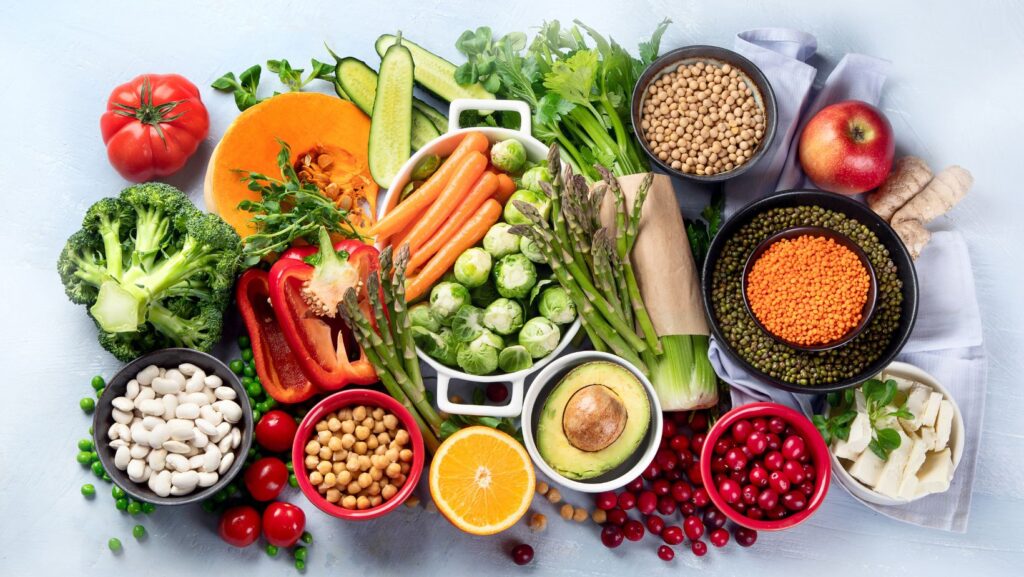Venturing into the great outdoors doesn’t mean you have to compromise on your vegan lifestyle. In fact, it’s entirely possible to maintain a plant-based diet while exploring the wilderness. This article will delve into the world of vegan backpacking food, proving that you don’t have to sacrifice taste or nutrition when you’re on the trail.
From lightweight, easy-to-pack options to hearty meals that’ll keep you fueled for your adventures, vegan backpacking food has come a long way. Whether you’re a seasoned vegan hiker or just starting to explore this lifestyle, you’ll find a wealth of information here to make your next trip a delicious success.
So, get ready to discover how you can make your backpacking experience not just a journey through nature, but also a culinary adventure. Vegan backpacking food is about to change the way you explore the great outdoors.
Unpacking the details around vegan backpacking food provides an essential wealth of knowledge for outdoor enthusiasts. Whether trudging up mountains or exploring forest trails, the right vegan provisions can be a turning point for your adventure.
Vegan Backpacking Food
Importance of Nutrient Density
 Densely packed nutrients in food hold extreme importance while backpacking. Light in weight, high in energy – these traits pitch outdoor meals a notch higher. Foods such as nuts, seeds (for instance, chia, flax, pumpkin seeds), and dried fruits offer dense nutrient packs. They fill caloric needs, curb hunger pangs, and provide essential vitamins and minerals. Likewise, whole grains like quinoa and bulgur serve as rich sources of complex carbs, providing sustained energy.
Densely packed nutrients in food hold extreme importance while backpacking. Light in weight, high in energy – these traits pitch outdoor meals a notch higher. Foods such as nuts, seeds (for instance, chia, flax, pumpkin seeds), and dried fruits offer dense nutrient packs. They fill caloric needs, curb hunger pangs, and provide essential vitamins and minerals. Likewise, whole grains like quinoa and bulgur serve as rich sources of complex carbs, providing sustained energy.
Balancing Taste and Convenience
Bringing balance between palatability and convenience lies at the heart of a successful backpacking cuisine. Vegan options prove no different. Backpacking meals such as ready-to-eat pouches of vegan stews or pasta, dehydrated vegetable soups, and raw trail mixes readily meet this criterion. They blend taste, nutrition and convenience seamlessly, enhancing your outdoor gastronomic experience without weighing down your backpack. Preparation ease, cooking-speed minimize fiddling time, maximizing enjoyment of the wilderness. Vegan backpacking food offers no compromise, guaranteeing a delightful union of taste, fulfillment, and simplicity.
Planning Your Vegan Backpacking Menu
Embarking on outdoor adventures calls for a well-planned vegan backpacking menu. This section provides essential information on determining caloric needs and diversifying meals for sustained energy.
Calculating Caloric Needs
A pivotal factor in planning any vegan backpacking menu lies in understanding caloric needs. It determines the quantity and types of foods to pack. These needs vary person by person, factoring in aspects such as age, weight, height, and level of physical activity. For example, Mayo Clinic suggests an average man engaging in moderate physical activity might need about 2,500 to 2,800 calories a day. In contrast, a woman with similar activity levels may require approximately 2,000 to 2,200 calories. These numbers spike drastically in backpacking scenarios where rigorous terrain necessitates higher energy intake. Sports Dietitians Australia provides an estimate of a 50% to 100% increase in calorie needs for backpackers, translating to 3,750-5,600 calories per day for men and 3,000-4,400 for women.
Diversity in Meals for Sustained Energy
Just as an artist’s palette needs diverse colors, a vegan backpacker’s menu thrives on a variety of nutrients for sustained energy. Incorporating an array of fruits, vegetables, grains, nuts, and seeds ensures balanced nutrition. Protein-rich foods such as lentils, black beans, chia seeds, and quinoa provide slow-releasing energy, reducing hunger pangs during treks. Complex carbs from whole grains like brown rice, oats, and whole-wheat bread offer steady fuel to keep you going. Additionally, fatty, high-cal foods (think avocados, nuts, and seeds) compactly store high energy levels. For example, trail mix, combining nuts, seeds, dried fruit, and dark chocolate, serves as a protein-packed snack satisfying taste buds, and delivering lasting energy. By diversifying meals, vegan backpackers maintain a consistent energy flow, crucial for long excursions in nature.
Thus, planning a vegan backpacking menu requires calculated thought on the caloric needs and a diverse meal plan for sustained energy to assure a fulfilling outdoor experience.

